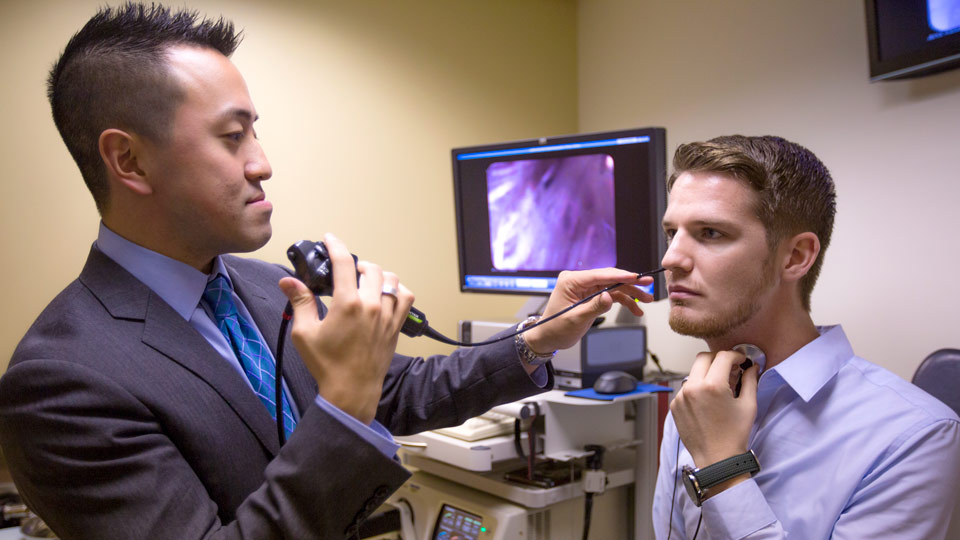Discovering the Area of Otolaryngology: What to Expect When You Consult an ENT
Otolaryngology, commonly described as ENT, encompasses the diagnosis and treatment of ear, throat, and nose disorders. For those experiencing related problems, speaking with an ENT professional can give clearness and relief. Comprehending what to anticipate throughout such consultations is vital for reliable communication and care. This summary will outline essential aspects of the ENT experience, including common factors for check outs and the processes included in medical diagnosis and treatment.

Comprehending Otolaryngology: A Summary
Otolaryngology, often described as ENT (Throat, ear, and nose) medicine, is a specialized branch of medication that concentrates on the medical diagnosis and therapy of conditions impacting these critical locations of the body. This field includes a variety of problems, including those pertaining to hearing, balance, respiratory function, and speech. Otolaryngologists are educated to manage both medical and surgical treatments, using innovative methods and technologies. Their expertise prolongs beyond conventional conditions, addressing concerns such as allergies, sinus infections, and hearing loss. In addition, they play a vital function in the monitoring of head and neck cancers cells, supplying comprehensive treatment customized to private patient requirements. Overall, otolaryngology continues to be vital for preserving wellness and high quality of life in afflicted individuals.
Typical Factors to See an ENT Professional
Many people look for the know-how of an ENT expert for a selection of reasons, showing the diverse nature of conditions that affect the ear, throat, and nose. Typical problems include persistent sinusitis, which usually brings about consistent nasal congestion and facial pain. Allergies and their linked signs and symptoms, such as sneezing and itching, additionally motivate check outs to these professionals (Otorrinolaringologia). Hearing loss, whether unexpected or progressive, is one more substantial reason for examination. In enhancement, individuals might seek assessment for throat disorders, consisting of persistent hoarseness or ingesting problems. Rest apnea, identified by disrupted breathing throughout rest, is frequently attended to by ENT specialists. Each of these problems highlights the significance of specialized treatment in handling complicated ENT-related health problems
Preparing for Your ENT Appointment
When getting ready for an ENT consultation, it is important to collect relevant information and think about any kind of details problems. People should compile a detailed case history, including previous ear, nose, or throat problems, surgical treatments, and present medicines. Documenting signs-- such as period, extent, and frequency-- can provide important understandings for the ENT professional. In addition, people should prepare a list of questions they want to ask, making certain that all concerns are attended to throughout the check out. Bringing along any kind of relevant clinical records or examination outcomes can additionally assist the ENT in comprehending the client's condition. Lastly, patients should confirm their appointment information, consisting of area, time, and date, to lessen any kind of last-minute complication. Appropriate prep work can boost the performance of the appointment and result in better outcomes.
What to Anticipate During the Appointment
As the consultation begins, the person can anticipate to take part in a complete conversation with the ENT specialist concerning their signs and clinical background. The specialist will ask about the duration, frequency, and intensity of signs such as hearing loss, nasal congestion, or sore throat. Additionally, the person's previous clinical problems, medicines, and any type of relevant household background will certainly be reviewed, aiding the specialist in forming a complete understanding of the person's health and wellness. The ENT may likewise ask concerning way of living aspects, such as direct exposure to irritants or irritants. This open discussion develops a foundation for the consultation, making sure that the person's problems are addressed and establishing the stage for any kind of necessary evaluations or suggestions for treatment.
Analysis Tests and Procedures in Otolaryngology
A variety of diagnostic tests and treatments are essential in otolaryngology to precisely assess and detect problems affecting the ear, throat, and nose. Usual tests include audiometry, which measures hearing function, and tympanometry, examining center ear pressure. Nasal endoscopy allows visualization of the nasal passages and sinuses, while laryngoscopy checks out the throat and vocal cables. Imaging methods, such as CT scans and MRIs, give comprehensive views of head and neck structures. Allergic reaction screening may also be performed to determine triggers for sinus or breathing issues. These diagnostic devices allow ENT specialists to establish a complete understanding of clients' conditions, ensuring tailored and reliable administration strategies. Correct diagnosis is essential for effective therapy outcomes in otolaryngology.
Therapy Alternatives Offered by ENT Specialists
ENT specialists supply a variety of therapy choices tailored to resolve particular problems impacting the throat, ear, and nose. These treatments vary from conventional techniques, such as medicine and lifestyle adjustments, to even more intrusive treatments. Allergies may be taken care of with antihistamines or immunotherapy, while persistent sinusitis may need nasal corticosteroids or Web Site sinus surgical procedure. For hearing loss, ENT experts typically recommend listening devices or surgical treatments like cochlear implants. In situations of throat conditions, options can include speech treatment or operations to eliminate blockages. Additionally, they might provide advice for handling sleep apnea, including using CPAP devices or medical treatments. On the whole, the objective is to boost clients' lifestyle through individualized care and efficient therapy methods.
When to Seek Follow-Up Care With an ENT
When to seek follow-up treatment with an ENT expert is vital for taking care of ongoing signs and symptoms or issues related to throat, ear, and nose problems, identifying. Clients must consider arranging a follow-up consultation if signs and symptoms persist regardless of first treatment, such as persistent ear pain, nasal congestion, or throat discomfort. Changes in hearing, equilibrium issues, or unusual nasal discharge might additionally call for further examination. Additionally, if an individual experiences negative effects from prescribed drugs or has undertaken an operation, follow-up treatment is crucial to check recuperation and resolve any type of worries. Prompt assessments can ensure efficient management of problems, avoid prospective complications, and give satisfaction regarding one's health and wellness. Looking for follow-up care promotes aggressive health and wellness administration in otolaryngology.
Often Asked Inquiries

What Certifications Should I Try to find in an ENT Specialist?
When seeking an ENT specialist, one must seek board qualification, appropriate experience, and solid individual testimonials. Additionally, effective communication abilities and a compassionate approach can significantly boost the total therapy experience.
Just how Do I Pick the Right ENT for My Demands?
Selecting the right ENT expert involves examining their certifications, experience, and patient evaluations (Sinus). It is crucial to ponder their interaction style and approach to therapy, guaranteeing they line up with the person's certain wellness requirements and preferences
Exist Any Risks Connected With ENT Procedures?
The risks connected with ENT procedures might consist of infection, bleeding, anesthetic problems, and potential damages to surrounding structures. Clients should go over these risks with their physician to comprehend specific problems and warranty informed choices.
Exactly How Can I Handle Anxiety Before My ENT Consultation?
To manage stress and anxiety before a visit, people can practice deep breathing exercises, picture favorable end results, prepare questions in breakthrough, and seek support from friends or family members, promoting a feeling of reassurance and calmness.
What Should I Do if I Experience Adverse Effects From Treatment?
The person should immediately report Visit Your URL them to their medical care copyright sensorineural deafness if side effects from treatment occur. Adjustments to treatment or extra interventions may be essential to guarantee security and performance in managing their condition - ENT Clinic. As the examination begins, the client can expect to engage in a complete discussion with the ENT expert about their signs and medical background. These diagnostic tools enable ENT professionals to develop a complete understanding of individuals' conditions, making certain tailored and effective monitoring strategies. ENT professionals offer a range of therapy alternatives customized to deal with particular conditions affecting the nose, throat, and ear. When looking for an ENT specialist, one must look for board certification, relevant experience, and solid client testimonials. Selecting the ideal ENT professional entails reviewing their qualifications, experience, and patient evaluations